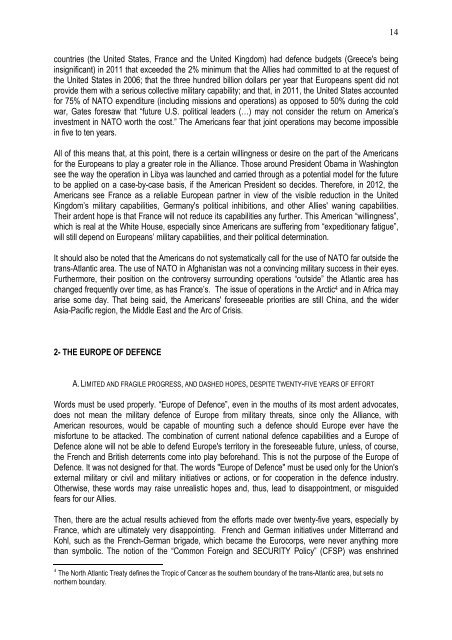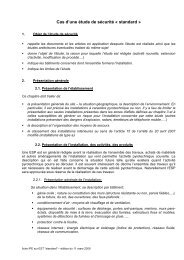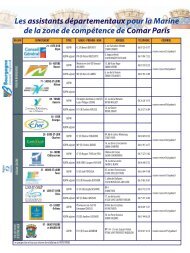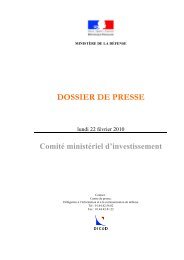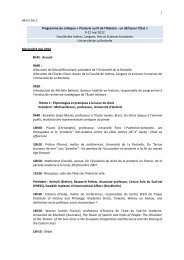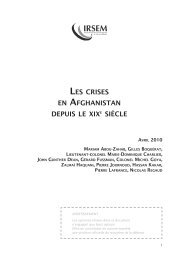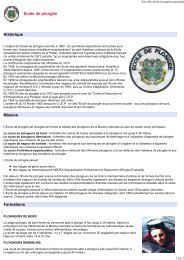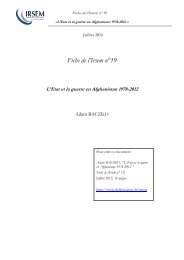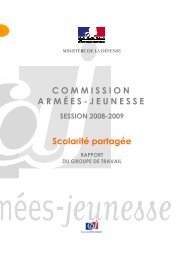Rapport Védrine_ENG_GERMAN - Ministère de la Défense
Rapport Védrine_ENG_GERMAN - Ministère de la Défense
Rapport Védrine_ENG_GERMAN - Ministère de la Défense
Sie wollen auch ein ePaper? Erhöhen Sie die Reichweite Ihrer Titel.
YUMPU macht aus Druck-PDFs automatisch weboptimierte ePaper, die Google liebt.
countries (the United States, France and the United Kingdom) had <strong>de</strong>fence budgets (Greece's being<br />
insignificant) in 2011 that excee<strong>de</strong>d the 2% minimum that the Allies had committed to at the request of<br />
the United States in 2006; that the three hundred billion dol<strong>la</strong>rs per year that Europeans spent did not<br />
provi<strong>de</strong> them with a serious collective military capability; and that, in 2011, the United States accounted<br />
for 75% of NATO expenditure (including missions and operations) as opposed to 50% during the cold<br />
war, Gates foresaw that “future U.S. political lea<strong>de</strong>rs (…) may not consi<strong>de</strong>r the return on America’s<br />
investment in NATO worth the cost.” The Americans fear that joint operations may become impossible<br />
in five to ten years.<br />
All of this means that, at this point, there is a certain willingness or <strong>de</strong>sire on the part of the Americans<br />
for the Europeans to p<strong>la</strong>y a greater role in the Alliance. Those around Presi<strong>de</strong>nt Obama in Washington<br />
see the way the operation in Libya was <strong>la</strong>unched and carried through as a potential mo<strong>de</strong>l for the future<br />
to be applied on a case-by-case basis, if the American Presi<strong>de</strong>nt so <strong>de</strong>ci<strong>de</strong>s. Therefore, in 2012, the<br />
Americans see France as a reliable European partner in view of the visible reduction in the United<br />
Kingdom’s military capabilities, Germany's political inhibitions, and other Allies' waning capabilities.<br />
Their ar<strong>de</strong>nt hope is that France will not reduce its capabilities any further. This American “willingness”,<br />
which is real at the White House, especially since Americans are suffering from “expeditionary fatigue”,<br />
will still <strong>de</strong>pend on Europeans’ military capabilities, and their political <strong>de</strong>termination.<br />
It should also be noted that the Americans do not systematically call for the use of NATO far outsi<strong>de</strong> the<br />
trans-At<strong>la</strong>ntic area. The use of NATO in Afghanistan was not a convincing military success in their eyes.<br />
Furthermore, their position on the controversy surrounding operations “outsi<strong>de</strong>” the At<strong>la</strong>ntic area has<br />
changed frequently over time, as has France’s. The issue of operations in the Arctic 4 and in Africa may<br />
arise some day. That being said, the Americans' foreseeable priorities are still China, and the wi<strong>de</strong>r<br />
Asia-Pacific region, the Middle East and the Arc of Crisis.<br />
2- THE EUROPE OF DEFENCE<br />
A. LIMITED AND FRAGILE PROGRESS, AND DASHED HOPES, DESPITE TWENTY-FIVE YEARS OF EFFORT<br />
Words must be used properly. “Europe of Defence”, even in the mouths of its most ar<strong>de</strong>nt advocates,<br />
does not mean the military <strong>de</strong>fence of Europe from military threats, since only the Alliance, with<br />
American resources, would be capable of mounting such a <strong>de</strong>fence should Europe ever have the<br />
misfortune to be attacked. The combination of current national <strong>de</strong>fence capabilities and a Europe of<br />
Defence alone will not be able to <strong>de</strong>fend Europe's territory in the foreseeable future, unless, of course,<br />
the French and British <strong>de</strong>terrents come into p<strong>la</strong>y beforehand. This is not the purpose of the Europe of<br />
Defence. It was not <strong>de</strong>signed for that. The words "Europe of Defence" must be used only for the Union's<br />
external military or civil and military initiatives or actions, or for cooperation in the <strong>de</strong>fence industry.<br />
Otherwise, these words may raise unrealistic hopes and, thus, lead to disappointment, or misgui<strong>de</strong>d<br />
fears for our Allies.<br />
Then, there are the actual results achieved from the efforts ma<strong>de</strong> over twenty-five years, especially by<br />
France, which are ultimately very disappointing. French and German initiatives un<strong>de</strong>r Mitterrand and<br />
Kohl, such as the French-German briga<strong>de</strong>, which became the Eurocorps, were never anything more<br />
than symbolic. The notion of the “Common Foreign and SECURITY Policy” (CFSP) was enshrined<br />
4 The North At<strong>la</strong>ntic Treaty <strong>de</strong>fines the Tropic of Cancer as the southern boundary of the trans-At<strong>la</strong>ntic area, but sets no<br />
northern boundary.<br />
14


